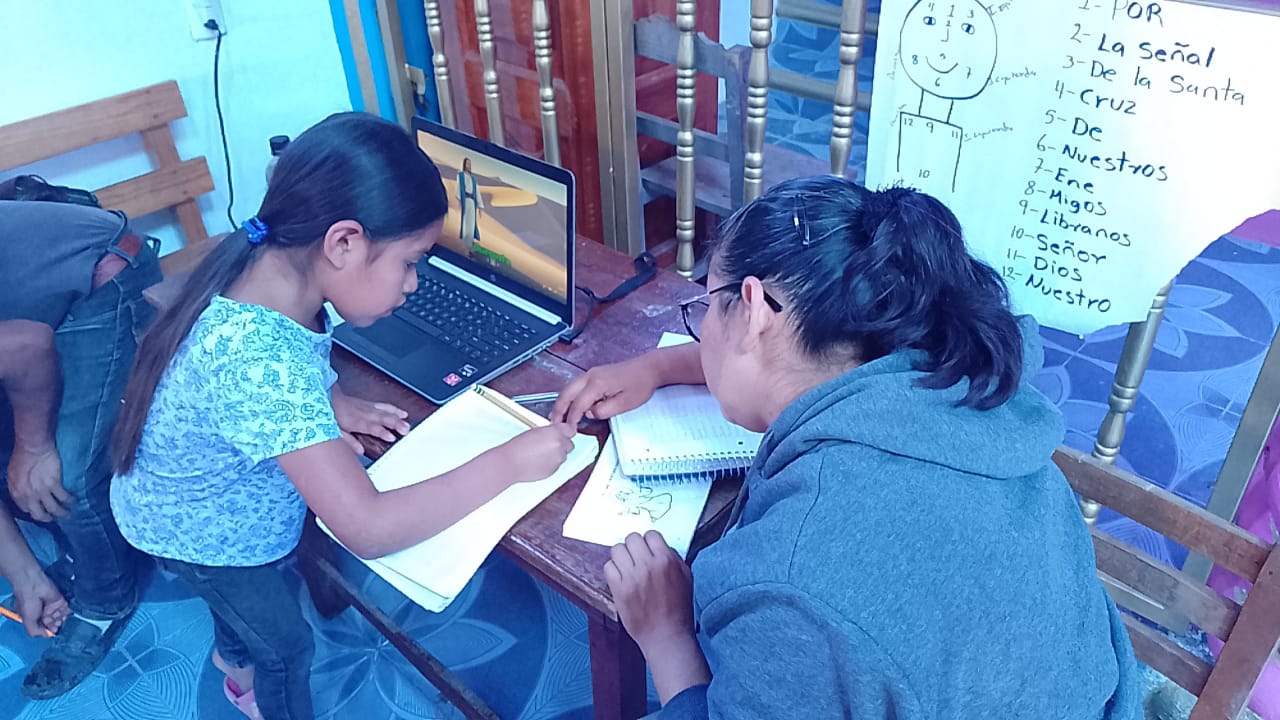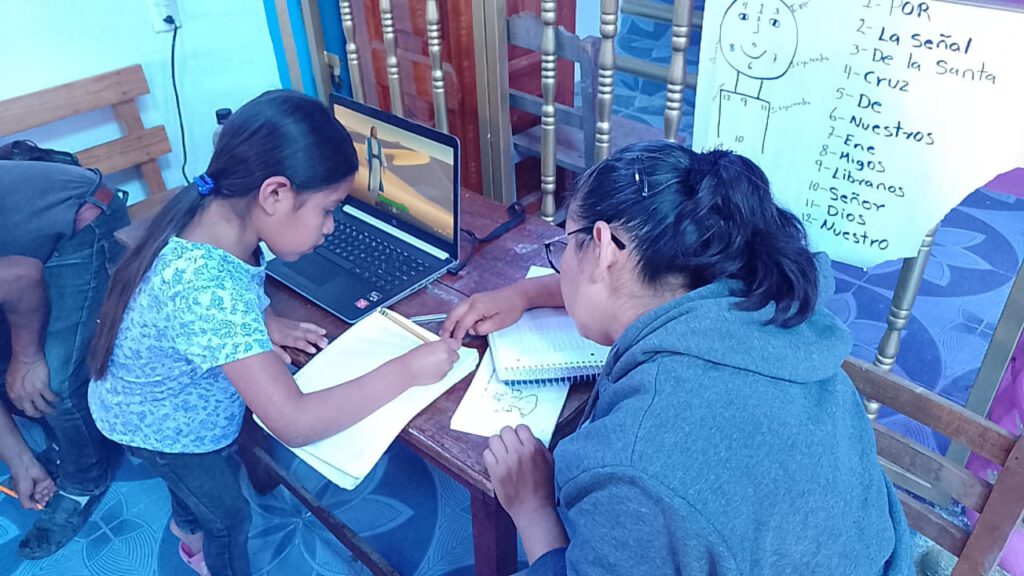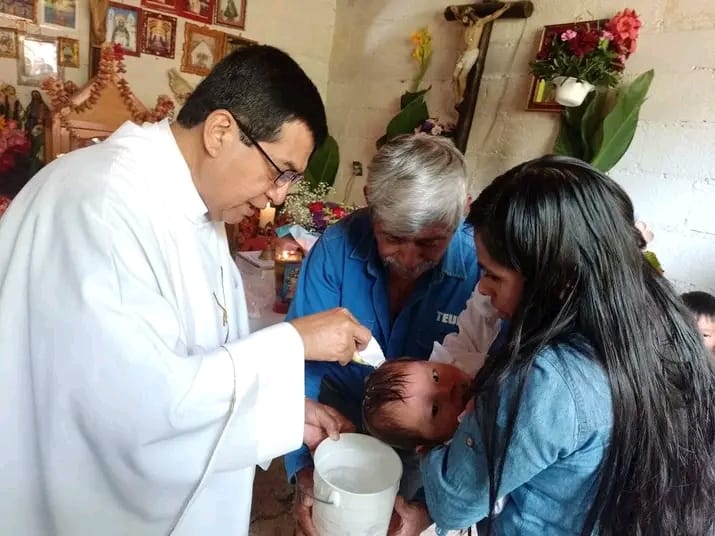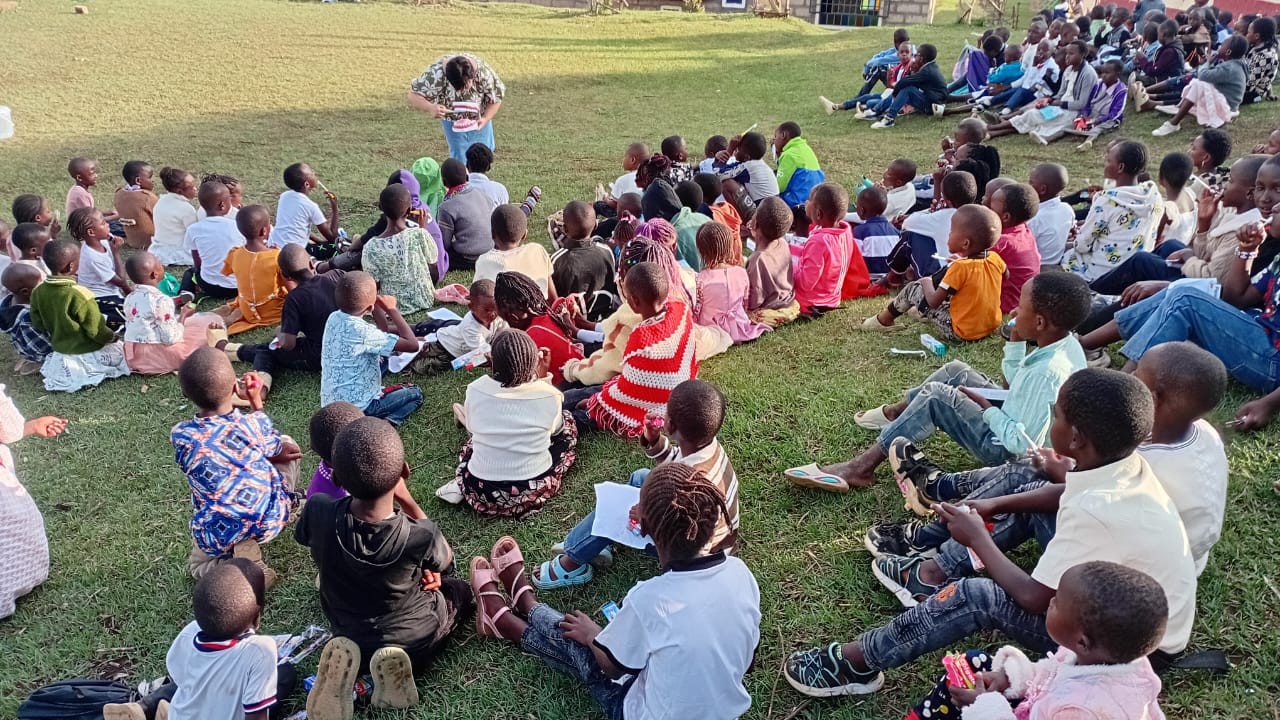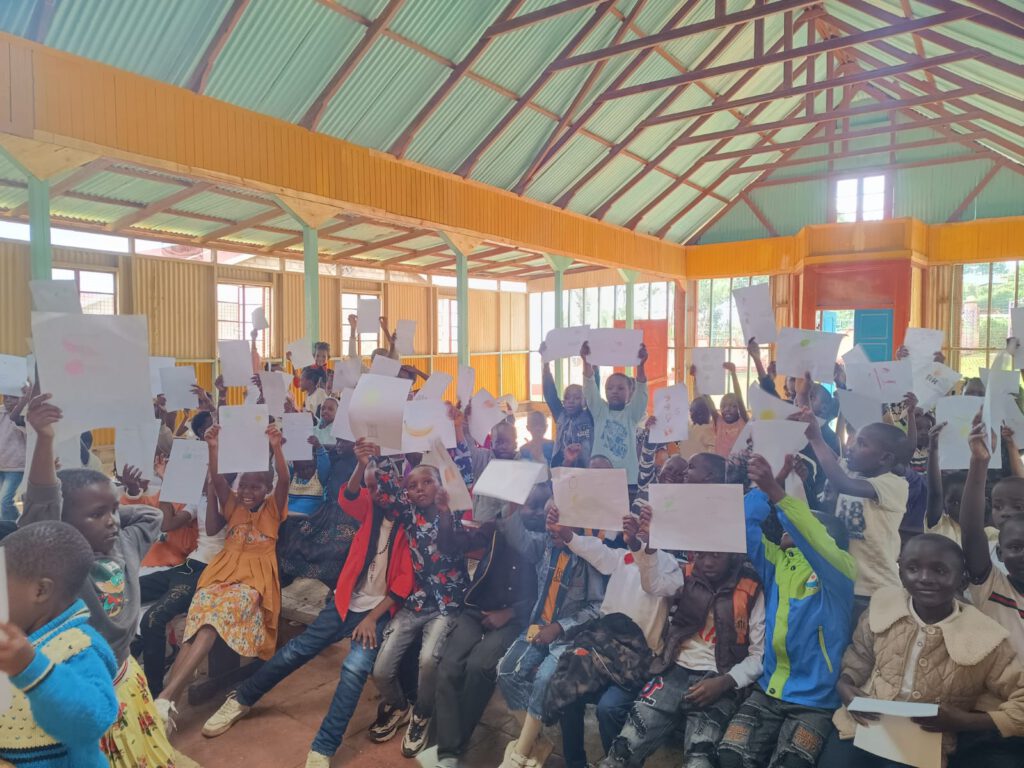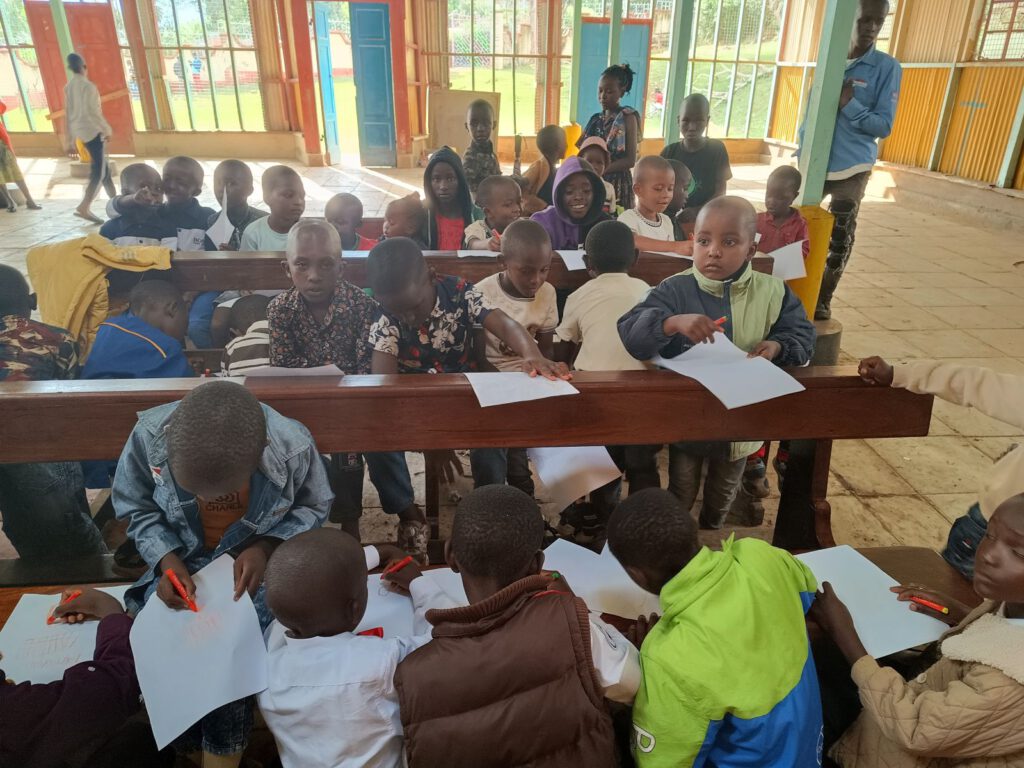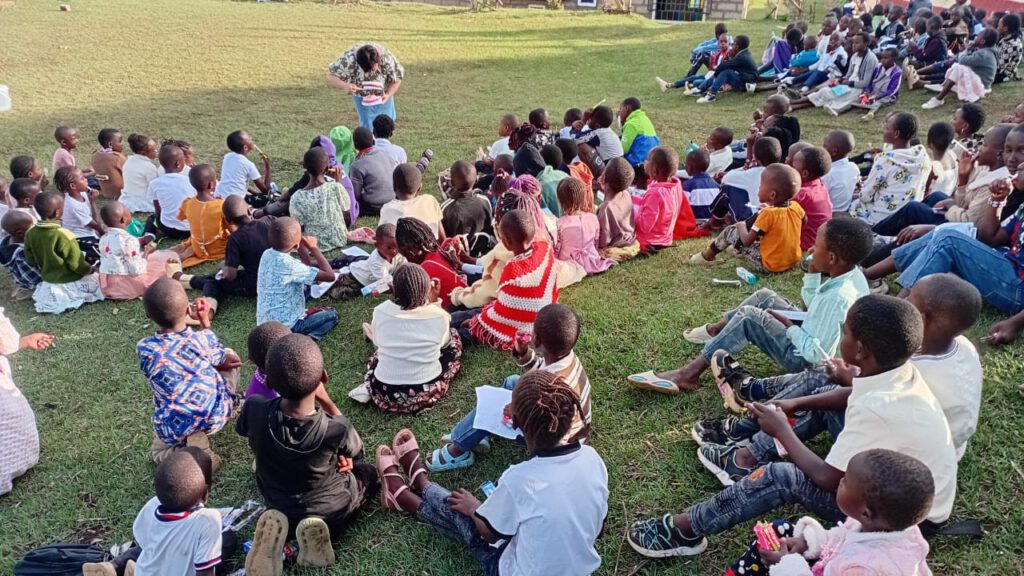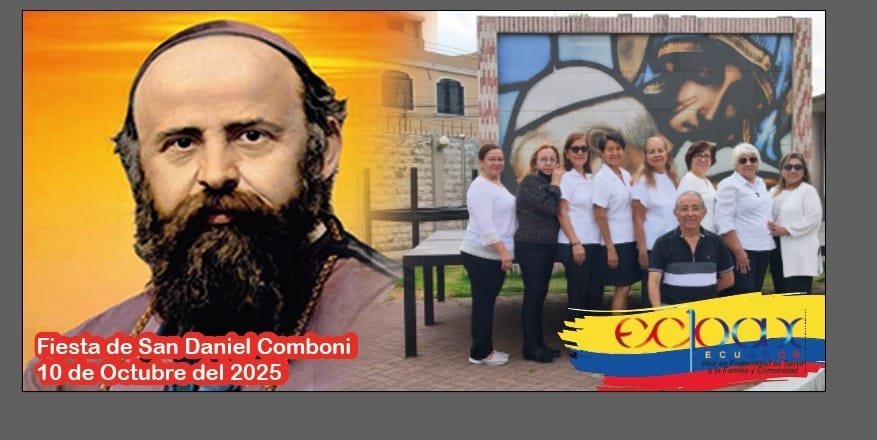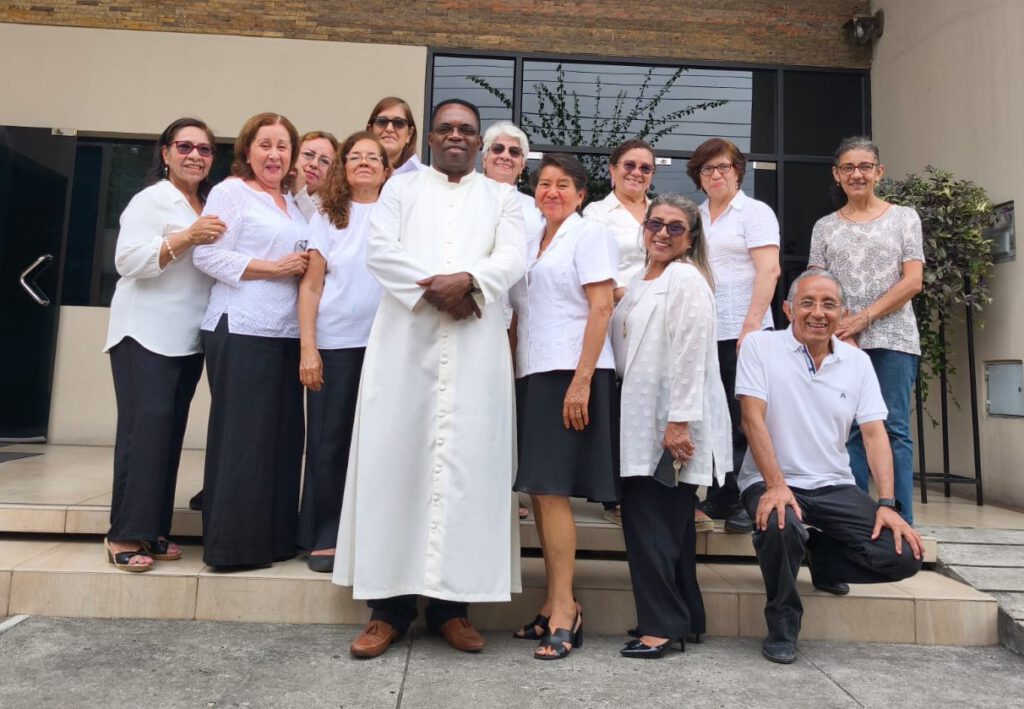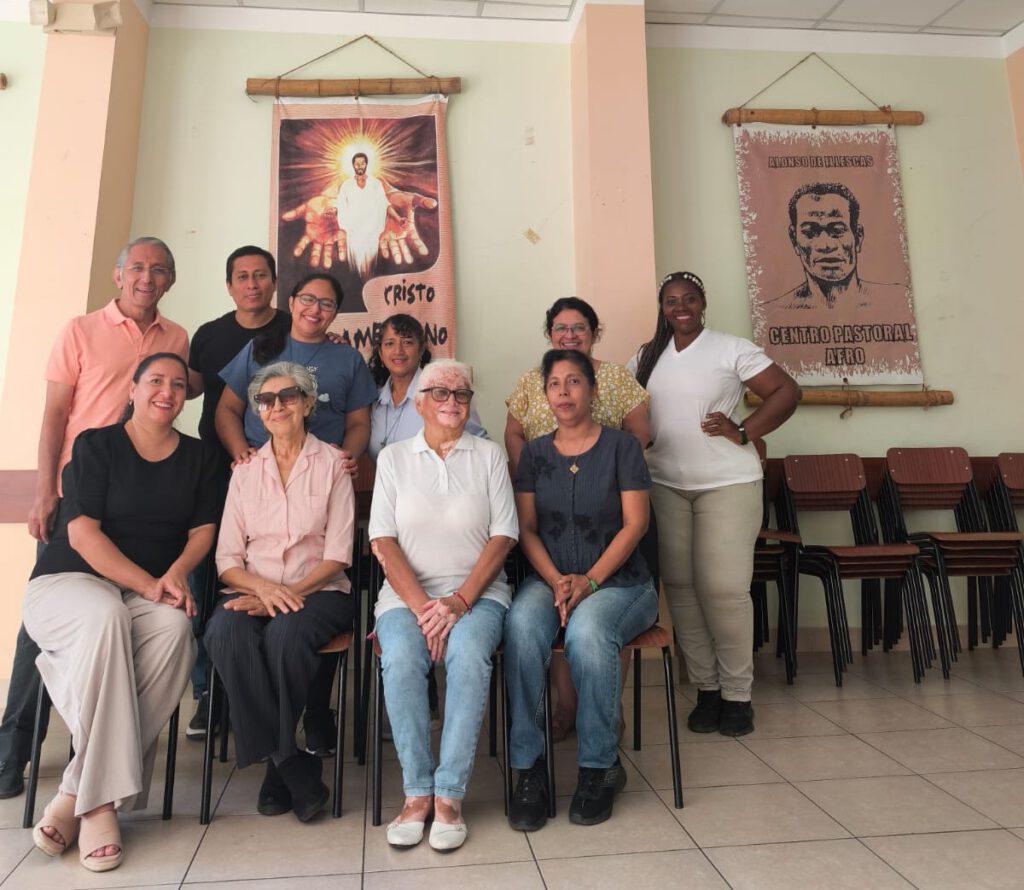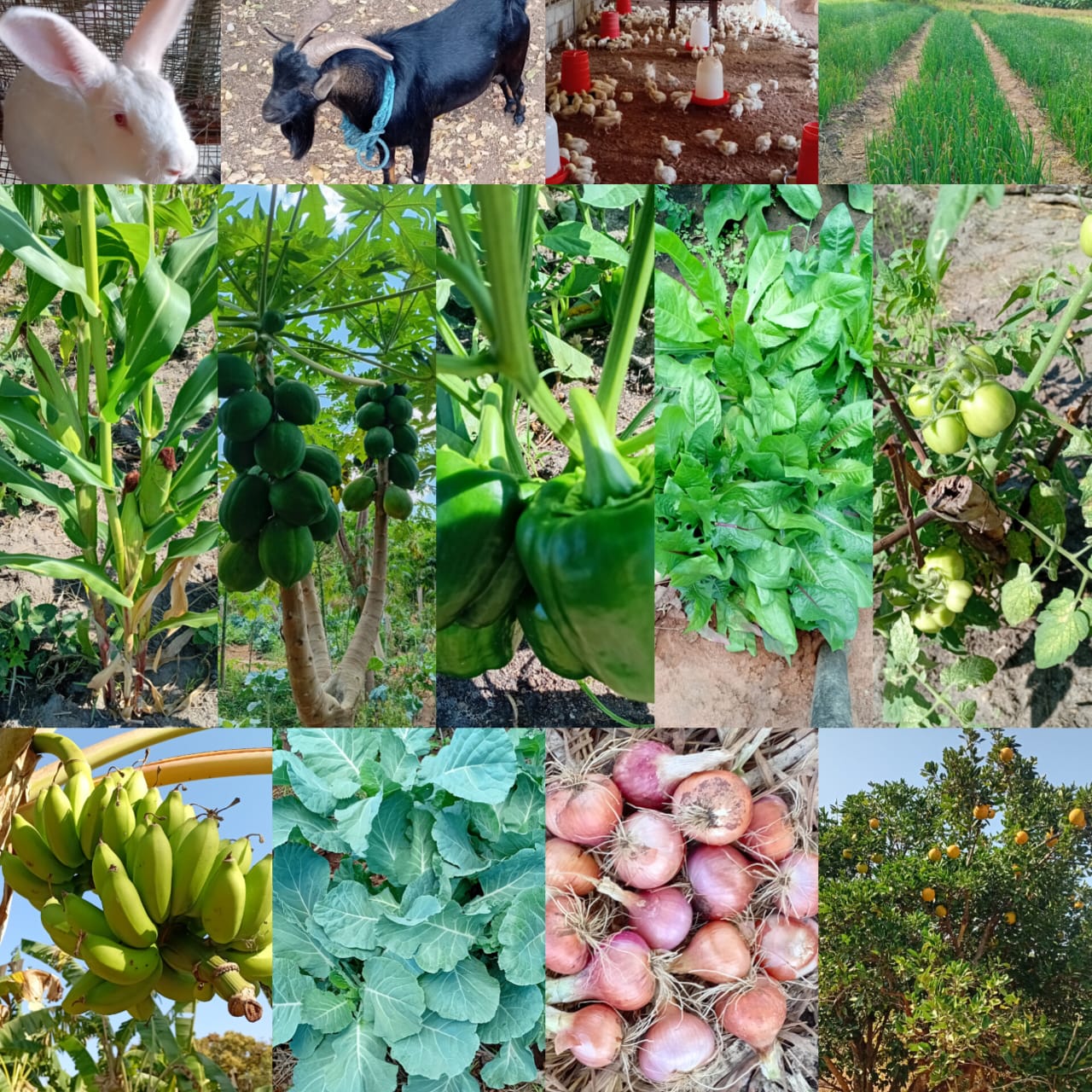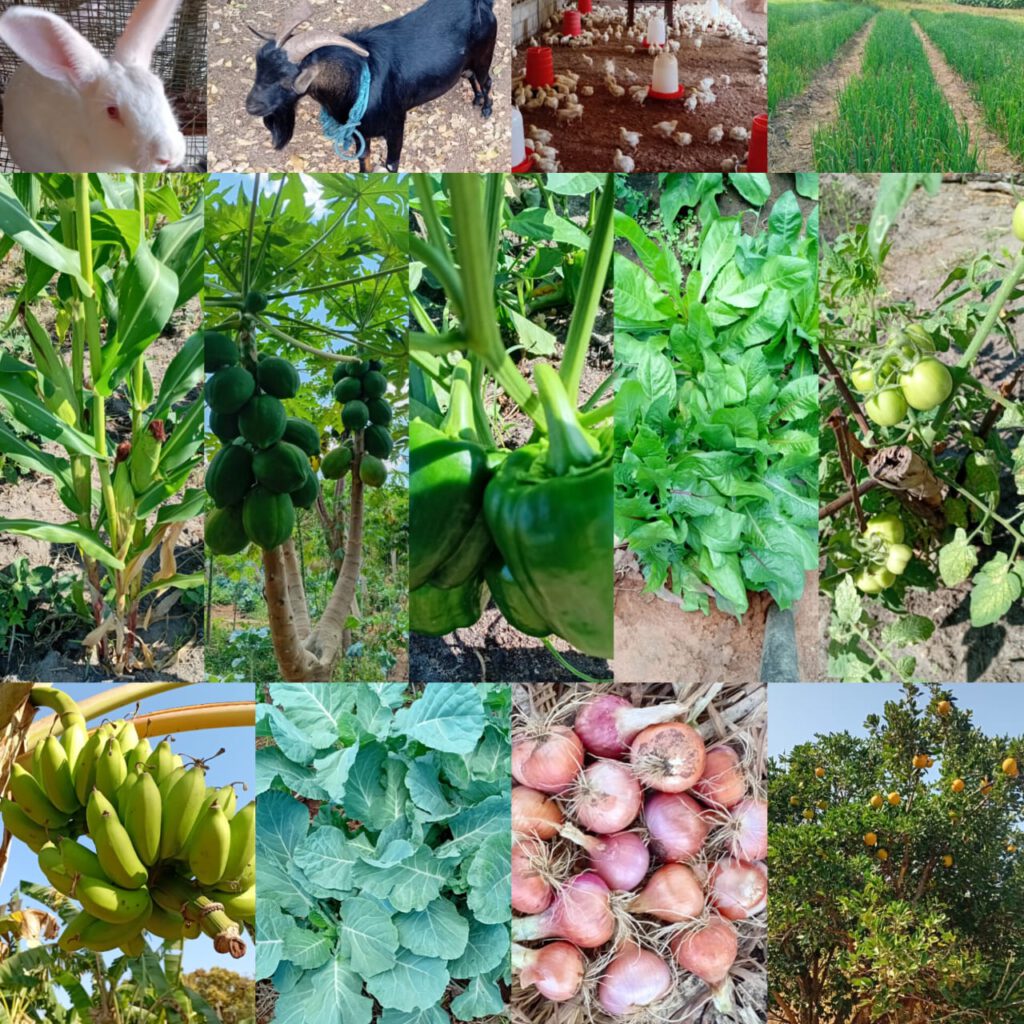We began this mission in Metlatónoc Guerrero on July 1, 2025, Mariana Meléndez and Leticia Orduñez, Lay Comboni Missionaries (CLM). We started from scratch, as the house where we would live was unfurnished and needed some plumbing work. We lived in the parish house until the 17th of the same month, when we moved into our new home, which was still undergoing repairs but was already livable. It is well located. From the roof, you can see the different neighborhoods, the mountains, and a beautiful landscape where you can appreciate the natural freshness of the place. The second floor has four rooms, one of which has been converted into a kitchen, and the others are bedrooms, so we can receive missionary visitors. Going down the stairs to the first floor on the left side, there is a large room that we plan to use for human growth meetings for people who are interested in learning crafts, tutoring, or whatever people have asked us for, such as praying the rosary.
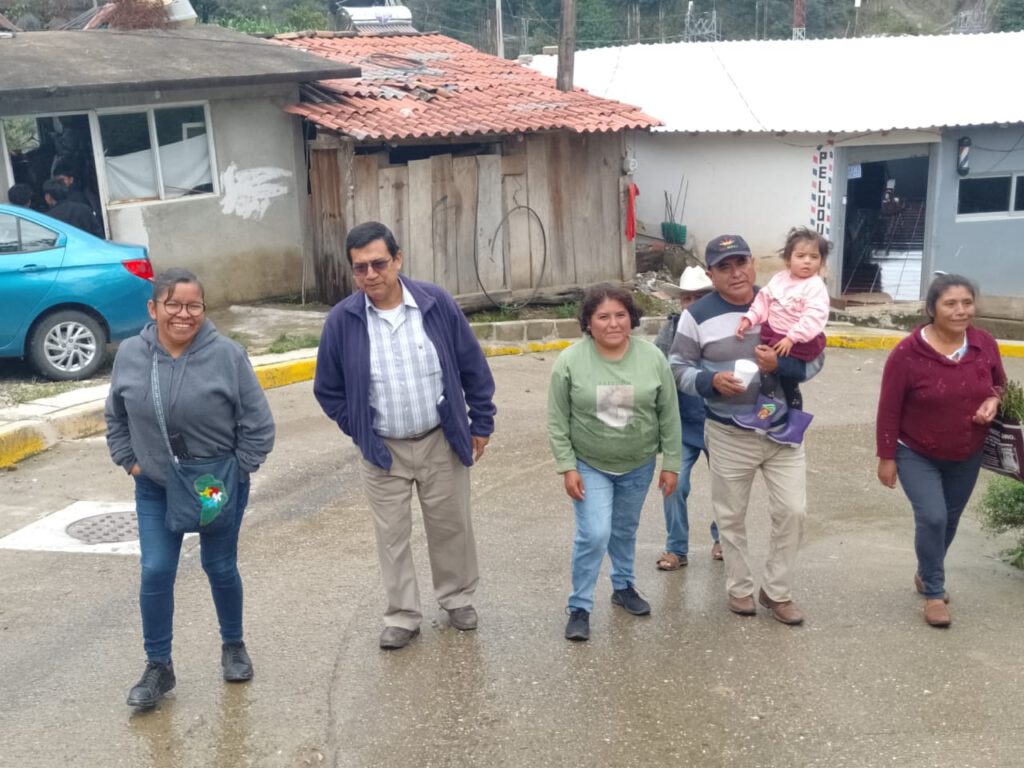
The Parish of St. Michael the Archangel, where Father Miguel Navarrete, MCCJ, is the pastor and Father Wojcech, MCCJ, is the vicar, has 39 communities. They are served by the notary’s office, which is open early in the morning. People from all the communities come there to request Mass, describing the needs of their families or requesting a sacrament. The local officials also invite the priest to celebrate Mass at their community’s festival. Little by little, we are making ourselves known at Masses, gatherings, and celebrations to which we have been invited. Father Miguel introduces us as missionaries who will be spending some time in Metlatónoc supporting the Church’s pastoral ministry.
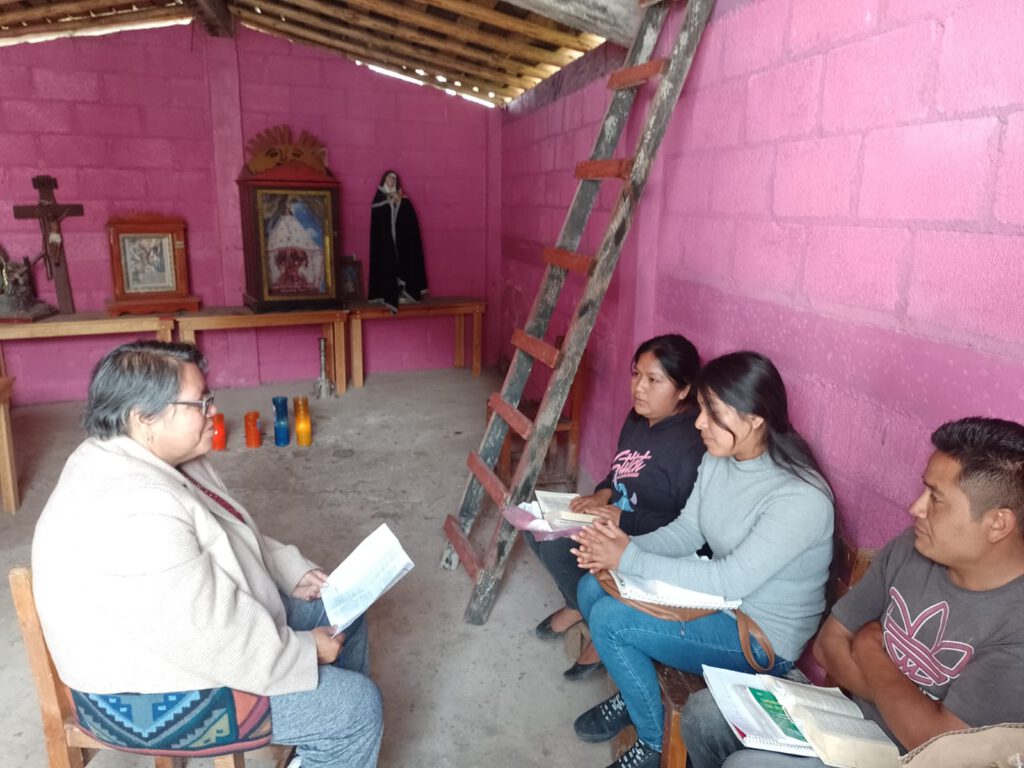
Catechesis is the door that has been opened for us to serve. We have begun in the parish area and in a community called Yuvinani. We have a group to train pastoral agents, with whom we meet twice a week for six months with a program proposed by the parish. Mr. Billano, Cristina, Elvia, Florina, Marcelina, and Adelma participate in this program; they are people who have made themselves available to help in the church. There are two groups receiving the sacraments: one is made up of 33 children and young people aged 9 to 24 who are preparing to receive their first communion, and the other is made up of seven teenagers aged 13 to 16 who are preparing for their confirmation. We are learning basic prayers and the commandments, and we share with them topics such as creation, the prophets, and the life of Jesus. We use videos to facilitate their understanding, giving examples from their community experiences and teaching them to differentiate between good and evil. The challenge we have encountered is language. Not everyone speaks Spanish, and we do not know Mixtec, so I am always checking with Mr. Billano, who helps me translate.
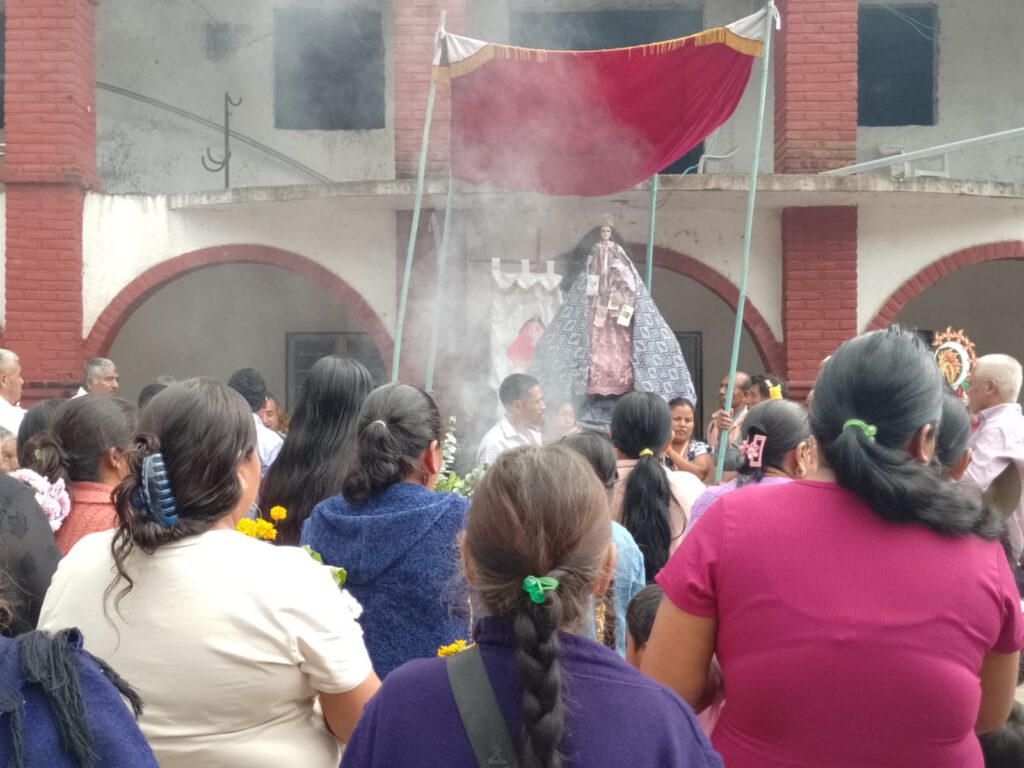
During these vacations, we had the opportunity to participate in the intensive catechesis and school support course organized by the parish priest, where we joined the service team and collaborated with Cesar, Consuelo, and Sonia, young people who are on vacation because they are studying abroad. Cesar taught mathematics and English in the school support program, while we women were involved in catechesis. There was good participation, even though it was raining, the children did not stop attending. They arrived at 3:30 p.m., we started with integration games, then the topic, and at 5:00 p.m. we participated in Mass. After that, we just gave instructions, they gathered their things to finish at 6:00 p.m. and leave early for home.
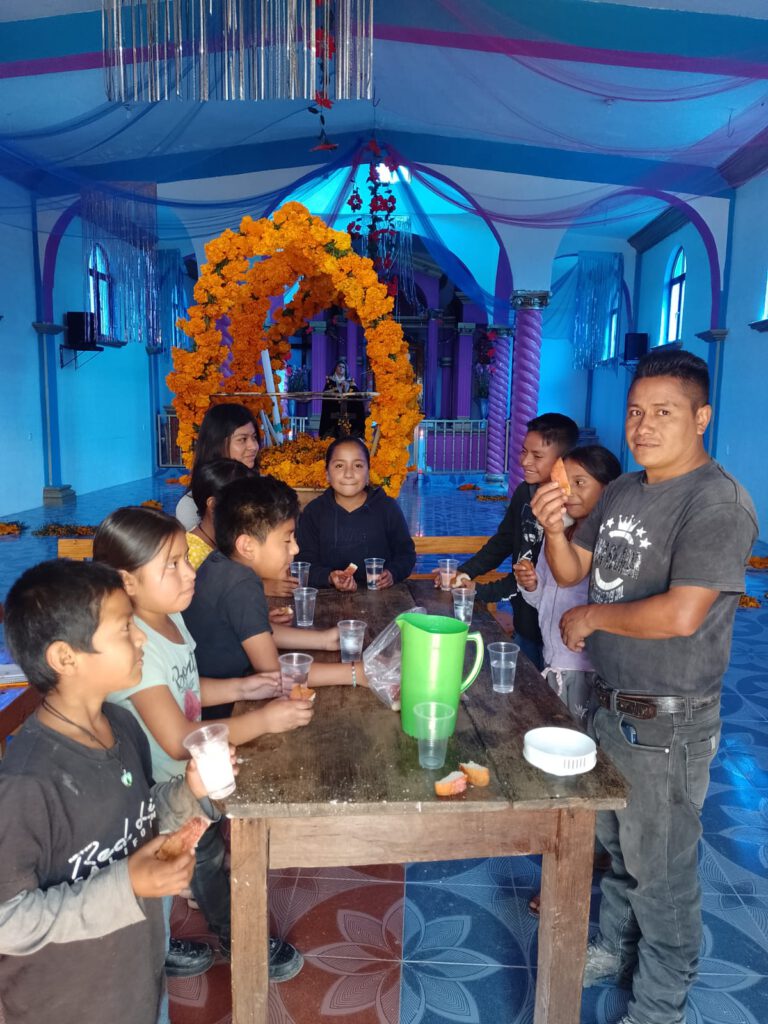
Due to the rains at this time of year, it is not possible to travel to the more distant communities because the roads are dirt roads, there are landslides, the hills are crumbling, and rocks of all sizes can fall, blocking the roads. It is also dangerous because accidents can happen and vehicles can fall into the ravine. The recommendation is that we visit these communities during the dry season. We already know some of them from visits we have made during Holy Week or Christmas.
We participated in the Diocesan Assembly in Tlapa, representing the parish with Fr. Miguel, Cesar, Gabriel, Adelaida, Leticia, and myself. We met for a week and discussed topics that helped us gain a general overview of the indigenous communities. We realized that there are different indigenous groups in the diocese, as they speak Tlapaneco, Nahual, and Mixtec, and there may be other language variants. Work teams were formed according to the area of service. Fr. Miguel and Gabriel were in the catechesis area coordinated by Fr. Nacho; Leticia and Cesar worked in the mission area coordinated by Fr. Damián; Adelaida and I were in the education area coordinated by Fr. Juan. It was something new for me, but it involved a lot of learning and commitment. The work was intensive and very helpful for us who are just arriving. Little by little, we are doing our part to walk in our Church where all the baptized can contribute something. I am grateful to those who keep me in their prayers, which give me the strength to continue even though I am far from my family. Thank you for your financial support, which makes it easier to continue maintaining the community. I would like to share with you that here the basic food basket is more expensive than in my community because it is not sold by the kilo but by the piece, and fruit and vegetables are really expensive. You can also join this project so that there are more of us in this CLM mission that we are starting on a permanent basis.
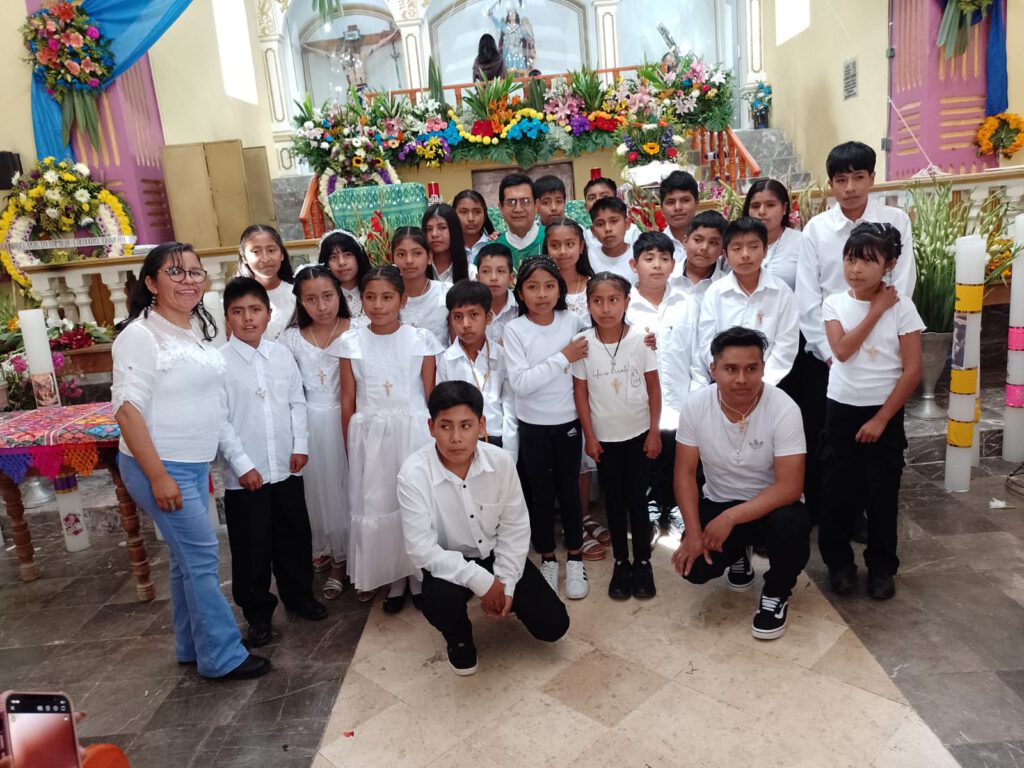
It has been a very beautiful experience to be sharing with the Mixtec people: the catechism course, school graduations at different levels, baptisms, quinceañeras, parish activities, and sharing with people in the traditions and customs they have here, as well as in celebrations in other communities. Everything has been very enriching for me as a person, but without forgetting who I am and where I come from.
Mariana Melendez Candido, CLM Mexico.




